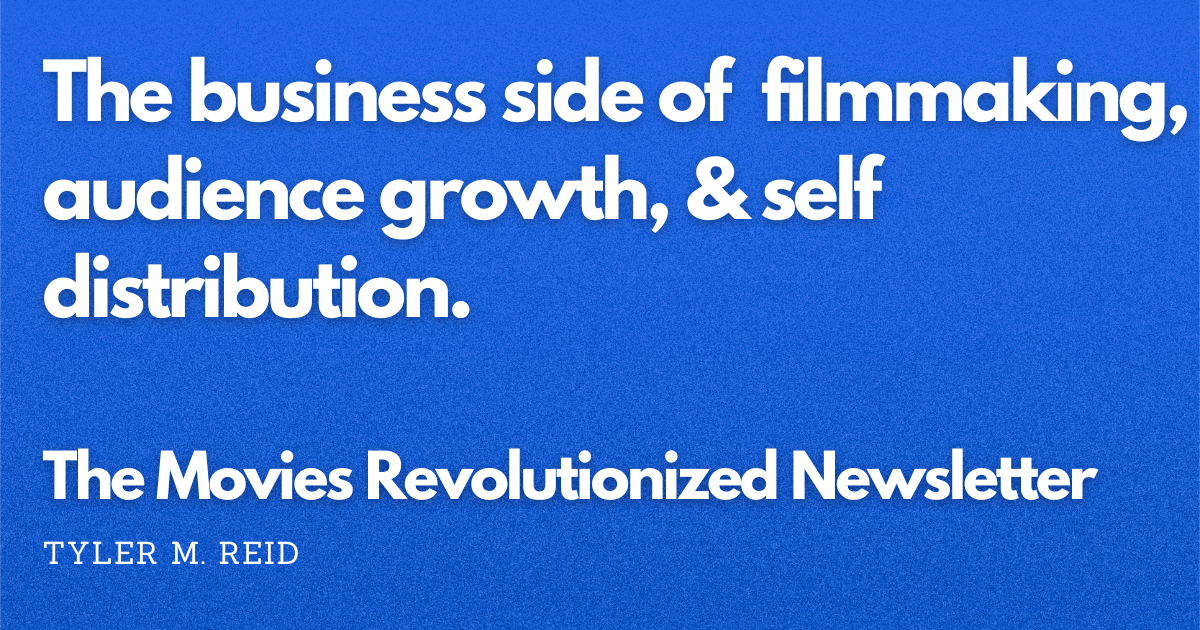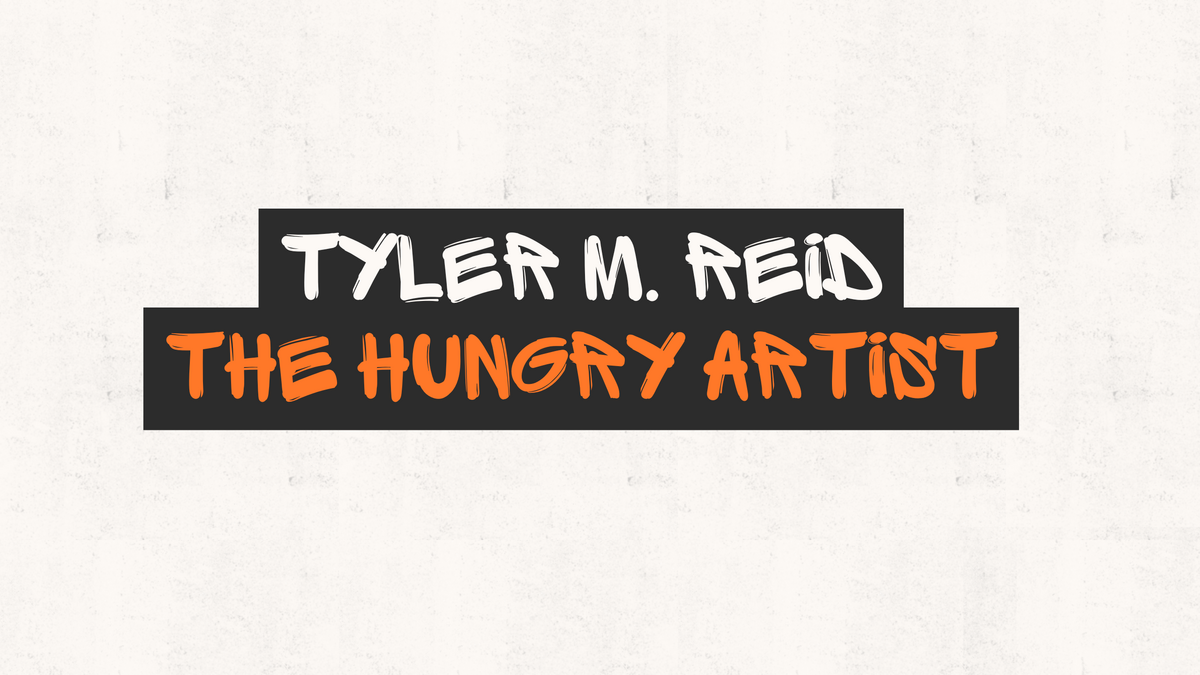Real quick what is an investor pitch deck.
An investor pitch deck is a document that outlines the product, in this case the film. It helps the investor understand what the product is, who is making it, how much it will cost to make it, how you will get it to market, and how much money it will earn from people buying the product - thus how much money the investor could potentially earn back.
You have to think of an indie film like a startup. You are literally starting with an idea, that you are raising money for so you can hire people to make the product that you sell to consumers, in this case those consumers are known as an audience.
It’s that simple. What you add into it can make it much more complex.
What are the items commonly seen in a pitch deck.
Market analysis
Marketing
Distribution
Production plan
Management team
Budget
Financial breakdown
Investment opportunity
For a free example template of a business plan pitch deck for investors you can download one from the link below:
Some people will add more visuals, some people will add more domestic or international distributions analysis, as well as various investor scenarios, and more.
But, in its most basic form it should at least have all of the above from the list.
Overview of the business plan pitch deck for investors.
Creating a pitch deck for movie investors involves putting together several elements that tell a compelling story. Start with a market analysis to show the current trends, target audience, and potential demand for the film. Then, outline a marketing strategy that details how you'll generate buzz and ensure the movie gets noticed. Your distribution plan should explain how and where the movie will be available to audiences, covering theaters, streaming services, and more. Include a production plan that breaks down the timeline, key milestones, and logistics of making the film. Highlight the management team, emphasizing their experience and past successes to build trust with investors. A well-thought-out budget is key, laying out all the expected costs. Pair this with a financial breakdown that shows projected revenue, profit margins, and return on investment. Finally, present the investment opportunity clearly, showing why investing in this movie is a smart move, supported by all the detailed plans and projections. This approach helps to ensure your pitch deck is both thorough and engaging, making it easy for investors to see the potential in your project.
It may seem odd that the budget and investment opportunity stuff isn’t up front, but that’s because you have already talked about those things first with the investor, so that when they are looking at your deck, they can see the other material first.
We’ll get into more of that a little down into the article.
The Same Formula
As I said above the formula is pretty much the same for all pitch decks for investors. Some are bigger than others, some go into more detail than others. Usually it is best to keep it as simple and streamlined as possible. A pitch deck can be anything from 5 pages to 20 pages, but it should not be filled with too much fluff or over selling.
If you are going to have 20 pages then in each of those pages it needs to show your research - what is in this page that is so important, that you spent a lot of time understanding and learning so that you could present valuable and accurate information to the investor.
Don’t add on extra trimmings because you think it will look smarter to investors. You look the smartest by being streamlined, understanding their time, and understanding what you are offering them in return for their hard earned money.
No matter what, at the end of the day, the investor is investing in YOU. You have to sell yourself first. We will get to that at the end of the article.
There are few things you can do that can improve the promise of your film to investors, and actually it’s about not overpromising.
Tips on CAST
In your pitch deck you may show the kinds of cast you are wanting to get on board your project.
Don’t list names of cast that you know you can not afford or you are very unlikely to get because they have very busy schedules. Your cast should be realistic to your budget size.
By putting in names of actors that are highly recognizable you are PROMISING to the person reading this deck that that is what you are going to try to achieve.
There are hundreds of recognizable actors at your budget level. Those are the actors that should be in your pitch deck. The ones you can afford, the ones that are likely to be interested in your project.
That is a promise you can make to an investor and feel pretty good at fulfilling.
If you have never casted anyone before and this is your first film, it is okay to list your cast as local talent that you are hiring for the roles.
It’s all about honesty and integrity in the pitch.
Tips on COMPS
In case you don’t know, a comp is shorthand for comparable. You put together a list of films that are comparable to your film. That will fall into two combined categories, genre + budget. If you have a horror film with a budget of $500,000 then you will list comparable horror films with the same budget that have already been released.
Don’t list comps of hugely successful films or outlier films - like Get Out or Paranormal Activity or Blair Witch Project. By putting in these kinds of comps for films, you are PROMISING to the person reading this deck that that is what you are going to try to achieve.
If you are putting in comps of hugely successful outliers, you are saying THAT is the film you are setting out to make - but that’s not true, that it not what you are trying to achieve. You are trying to earn money back AND then make a decent profit.
Anything above that is a bonus to the investors, but it shouldn’t be in the packet because then it almost makes it a promise.
Find films that are at your budget level that made a relative profit back.
It’s better to find films that aren’t that well known or may even be a film an investor has not heard from.
BUT you can say the film was made for $500,000 but made $2 million. Or a film was made for $250,000 but made $3 million. There are a lot of films out there you just have to do good comp research. Those kinds of films are GREAT comp films - because they feel realistic and possible to fulfill the promise.
The same thing applies if you were making a deck for a producer. Through their experience they are going to see right through all that and know, making one of those outlier films is difficult AND you have no control over if it will happen or not.
However, you have some control over making a film good enough that will make back the money and could earn a profit. A producer would rather see you understand that, than to say you will be the next outlier film.
Don’t over promise their timeline of the return
Make sure the investor knows that their investment will pay out up to five years. It’s not like they will invest $500,000 and then in 18 months later earn their money back and make a profit. It takes time for that money to earn back and it can take 5 years to earn that money back.
So by giving a return projection of 5 years feels realistic. This also helps them to determine if this is an investment vehicle they want to be involved in. Maybe they have the money BUT it’s not a risk they can financially take at the moment knowing it could take 5 years to see a return.
Again, it’s about the promises you are making to the investor.
The element that can push it over the edge is The Powerful POC
If you can have a Proof of Concept(POC) either it be a trailer or a small scene you filmed. That will go SO MUCH further than just some images in your pitch deck. Earlier I wrote about some great examples of a proof of concepts.
A short video POC really sells the entire package. After you talk about the project and maybe even look through the deck with them, you show them the reality. THIS is the movie we are trying to make.
It may be worth the time and money to put together a POC. Remember, it could take months to finally meet with the investor and when you do, you may only have one chance to get them to say yes - it’s best to go with a lot of effort.
The DECK and POC are SECONDARY
The most important element of all of it. The main pitch is you!
The pitch deck. The proof of concept. That is all the FINAL supplemental material. Because no one is going to invest with you over an email and pitch deck. They want to talk with you, if you can get them to talk in person, it is even better.
I want to emphasize this again. You are not going to email an investor a pitch deck and then they reply back that they want to invest. The project is only a small part of it. They want to know who they are entrusting their money with and that only happens by having a conversation with you.
The conversation sells the pitch.
The pitch deck and proof of concept, that is all the supplemental material after you have sold them in the conversation/pitch. You may not even have to open the pitch deck. You should be able to tell the investor in just a few minutes why you need the money, how the money will be used, how they will make money and when they will make their money back, IF they do. Don’t over talk and don’t over sell. Give them the basics of the pitch for them to invest and then let them ask questions.
The goal of the pitch deck is that after their conversation with you, they have something in their hands that will answer all questions they may have.
FINAL TIP
Lastly, your ultimate goal is to deliver on your promise to the investors so that those same investors will want to invest in your next film.
It’s much easier doing that than to find all new investors and have to build up new relationships of trust and comfort.
One of the best ways to build that trust is to make sure you let the investor know, there is a high probability they could lose their money and never make any of it back. You need to make sure they understand they may make nothing back and it is possible they will lose all of their money. Ensure they are okay with losing this money they are about to invest.
Not only could you be committing fraud by not letting the investors know they could lose their money, BUT being open with them will build trust.
There are two ways I can help you.
I give away a free bundle with example pitches, templates, and interactive budgets that you can grab right here.
If you are on your journey to make your first short film, documentary, or even micro budget feature, this course is designed to help you find money, grow your audience, and earn an income.


